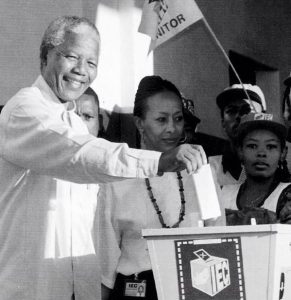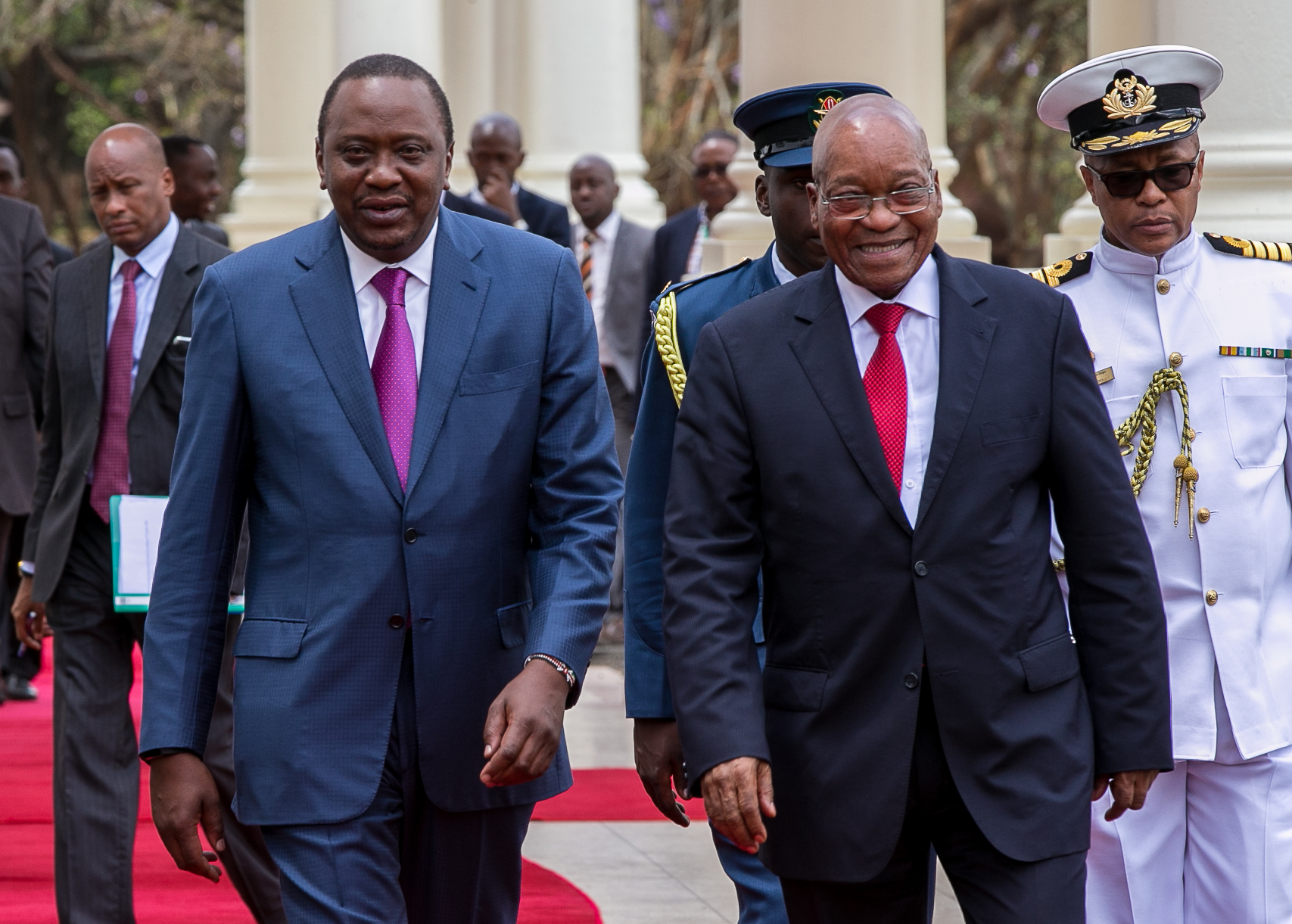
An internet picture of Kenyans on a snaky line to cast their votes at a referendum in 2010
Today may close with new presidents in two leading African countries just as it could be otherwise. In South Africa, parliamentarians would be voting on a No Confidence motion that could see the exit of Jacob Zuma, the incumbent president. The voting will be by secret ballot. In Kenya in East Africa, a new president could also emerge later today or tomorrow if incumbent Uhuru Kenyatta fails to be re-elected. The gap between the two has been put at a very narrow percentage and anything could happen. Much of the analysis so far is that if technology functions well, the election might produce an outcome credible enough and acceptable to all parties. If the electronic voting arrangement fails, it may create room for manipulation of votes and contestation of the disputed results could stretch into violence.
How far this sort of analysis reflects the situation on the ground remains to be seen. It could be the usual emphasis on self-fulfilling negativity that creates doubt in the capacity of the African agency to handle supposedly complex systems and such analysis, therefore, implicate the media houses engaging in them in any such subsequent spectacle of violence and suffering. The fact that violence occurred a decade ago in the aftermath of a similar election does not mean that the politicians have not learnt any lessons. Some analysts warn though that when it comes to power, many African politicians are unable to reflect on the implications of their decisions and actions.
An analysis by Professor Leonardo Arriola of the Department of Political Science at the University of California in Berkeley along with Donghyun Choi of the same Department and Victor Rateng, a civil society actor for The Washington Post (August 7th, 2017) is saying that Uhuru Kenyatta has 99% of voters of Kikuyu ethnic identity backing him while Odinga has 99% of those of Luo ethnic identity although none can win the election on the strength of any of these ethnic groups. Each has, therefore, tried to attract voters from across.

Opposition candidate in Kenya, Raila Odinga
While the contest in Kenya is a rather straightforward one featuring Uhuru Kenyatta, the incumbent and Raila Odinga who has contested the position several times before, it is an incumbent being held to account by the opposition in the case of South Africa. According to the BBC, the opposition parties would need at least 50 members from the ANC, the ruling party to muster the required number that would pass the No Confidence verdict on Zuma and get him out. If that happens, it will be a very positive statement on how functional democracy is in South Africa because, across Africa, it is never easy to send an incumbent packing. Given the experience of the ANC as a national liberation party in power, it was assumed democracy would not be so quickly dented and an ANC President having to defend him or herself against corruption. Now, whoever thought so was naive. Even now, some parliamentarians are posting narratives of death threats just because they said they would vote against Zuma. How far and how quickly can things degenerate in an African country!
President Jacob Zuma is a veteran of bursting attempts to pass No Confidence vote on him. Additionally, the ANC would consider the success of a No Confidence vote a threatening development and would prefer the option of driving away the hawk then chide the chicken for wandering recklessly.

In the beginning in 1994
The surprise announcement that the voting would be secret ballot earlier today, however, brings in the sneaky feeling that the ANC or a faction of key actors might have taken a strategic decision to let Zuma fall while they brace up to deal with the consequences later. Baleka Mbete as a 30 – day president of South Africa may not be that farfetched. Mbete is currently the Speaker of the National Assembly. Some analysts predicted her correctly on how she would handle the decision on the No Confidence vote. Writing in Johannesburg based Mail & Guardian August 7th, 2017, Roger Southall, University of Witwatersrand Professor of Sociology wrote as follows: The likelihood is that she will seek to deflect criticism by announcing in favour of a secret ballot – but only at the last minute”. This was exactly what happened.
Professor Southall has sketched out three plausible scenarios for the ANC. One, the party beats the opposition massively and Zuma retains the office and the party deals with the internal ripples and popular hiatus that comes with that. Two, the ANC just manages to win, meaning that many of its parliamentarians voted along with opposition. What house would contain Zuma and such ‘strange lovers’ especially if they are party big guys? Three, the ANC is beaten, Zuma steps down and hell is let loose ahead of the party conference in December.
In a matter of hours, at most 12 hours from this moment, the world would know which of these scenarios would play out




























